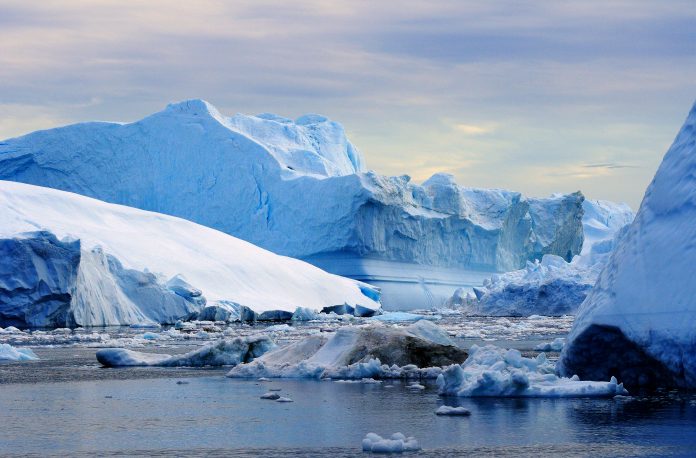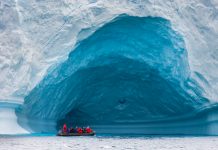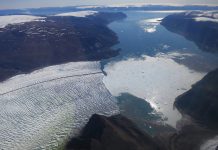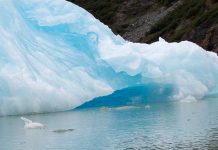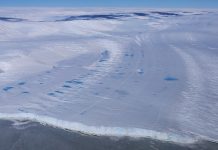A new study has found that sea level rise from the melting of ice could be halved this century if we meet the Paris Agreement target of limiting global warming to 1.5°C
The research, funded by the Natural Environment Research Council (NERC) and conducted by an international community of scientists, explored the land ice contribution to sea level in the 21st century arising from the world’s glaciers and the Greenland and Antarctic ice sheets.
Using a large number of computer models combined with statistical techniques, it predicted that if we limit global warming to the Paris Agreement target of 1.5°C, Greenland ice sheet losses would reduce by 70%, and glacier losses by half.
For Antarctica, the predictions are the same for different emissions scenarios, because it is unclear whether snow falling in the cold interior of the ice sheet will offset melting at the coasts.
Glaciers and ice sheets are currently responsible for around half of global sea level rise.
COP26
Dr Tamsin Edwards, Director of the King’s Climate Hub and lead author on the paper ‘Projected land ice contributions to twenty-first-century sea level rise’ said:
“Ahead of COP26 this November, many nations are updating their pledges to reduce greenhouse gas emissions under the Paris Agreement.
“Global sea level will continue to rise, even if we halt all emissions now, but our research suggests we could limit the damage.
“If pledges were far more ambitious, central predictions for sea level rise from melting ice would be reduced from 25 cm to 13 cm in 2100, with a 95% chance of being less than 28 cm rather than the current upper end of 40 cm. This would mean a less severe increase in coastal flooding.”


